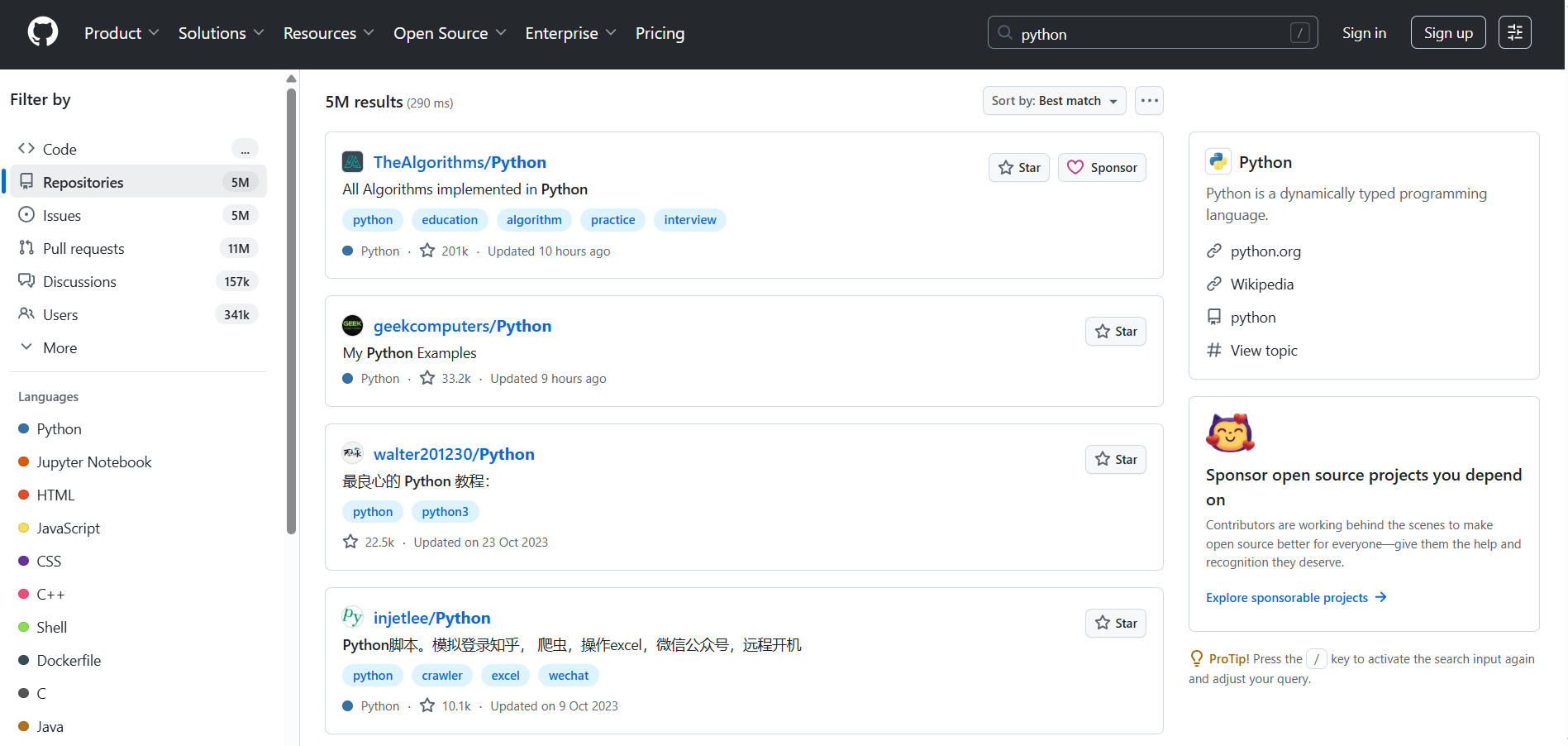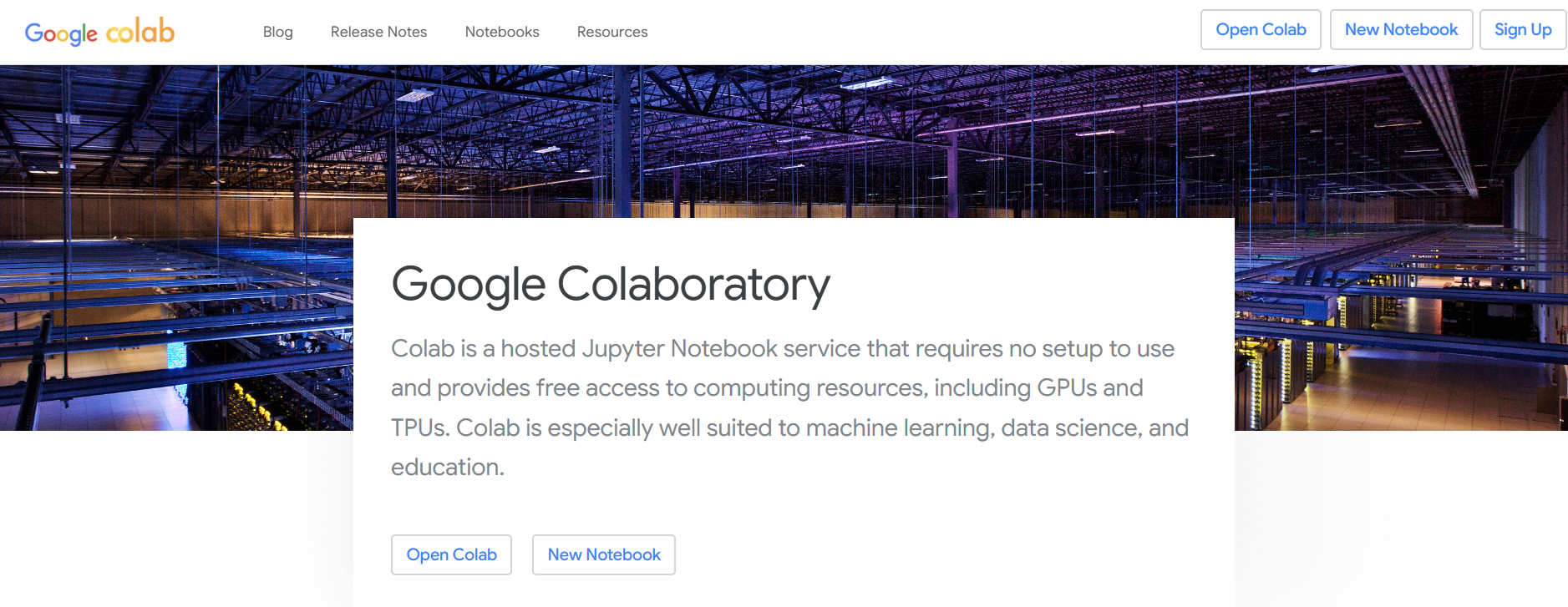- Python automates repetitive and data-heavy SEO tasks, saving time and increasing accuracy.
- Key Python libraries for SEO include Pandas, BeautifulSoup, Requests, and NLTK.
- Beginner-friendly tools like Google Colab make it easy to start without prior coding experience.
- Python scripts can handle redirect mapping, meta description generation, content analysis, and API integrations.
- Using Python empowers SEOs to scale workflows and gain deeper insights for better optimization.
Search engine optimization is becoming increasingly data-driven and technical.
With the rise of large websites, frequent content updates, and ever-changing algorithms, manually handling all SEO tasks has become inefficient and error-prone. This is where Python comes in.
Python is one of the most popular programming languages in the world, and it’s quickly gaining traction among digital marketers and SEOs.
In fact, according to Stack Overflow’s 2024 Developer Survey,Python ranks as the second most used language globally and the top choice for automation and data analysis.
For SEO professionals, Python opens the door to automating repetitive tasks, analyzing large data sets, integrating APIs, and scaling processes that would otherwise take hours or days to complete.
Whether it’s creating a redirect map, analyzing keyword clusters, scraping meta data, or auditing image alt attributes, Python empowers SEOs to do more in less time.
A 2023 survey by Search Engine Journal found that over 40% of technical SEOs are now using Python in their workflows, and that number is growing rapidly.
In this guide, we’ll explore 10 practical Python scripts tailored for SEO automation.
You don’t need to be a developer to start—just a willingness to learn and experiment.
Each script includes a simple explanation, sample code, and use cases so you can apply them to real-world SEO challenges right away.
Whether you’re a beginner or looking to take your technical SEO to the next level, this guide is your step-by-step introduction to the power of Python for SEO automation.
Let SEO Run Itself—With Nexa Growth
We automate what matters so your rankings rise on autopilot.
Contact UsWhy Python Is Important for SEO Automation
As SEO evolves, the volume and complexity of tasks continue to grow.
From auditing thousands of pages to analyzing keyword data and integrating with third-party tools, the modern SEO workflow demands both speed and precision.
Python addresses these challenges by offering a scalable, repeatable way to automate virtually any SEO task.
Python’s real value lies in its simplicity and flexibility. Unlike other programming languages, Python’s syntax is clean and readable, making it accessible even to non-developers.
Whether you’re a technical SEO specialist or a content strategist, learning Python can significantly boost your productivity and strategic impact.
Here’s how Python can transform your SEO efforts:
- Automate Repetitive Tasks
Tasks like checking for broken links, generating meta descriptions, and creating redirect maps can be automated to save hours of manual work. - Handle Large Datasets with Ease
SEO often involves working with thousands of keywords, URLs, or log files. Python, especially with libraries like Pandas and NumPy, allows you to clean, filter, and analyze this data efficiently. - Access and Integrate APIs
Tools like Google Search Console, Ahrefs, and Semrush offer APIs that you can tap into using Python to fetch data automatically and build custom reports. - Perform Advanced Data Analysis
Want to identify keyword cannibalization or cluster topics based on semantic similarity? Python makes these complex analyses not only possible but repeatable. - Build Scalable Workflows
Python scripts can be adapted to run across hundreds of websites or thousands of pages, turning one-time tasks into reusable processes.
As competition in search intensifies, SEOs who can pair creativity with automation will be better positioned to scale results.
Python isn’t just another tool in the tech stack—it’s quickly becoming a core skill for forward-thinking marketers.
Featured Article: What Is Local SEO, and Why Does It Matter?
Getting Started: Python Basics for SEOs
If you’re new to Python, the good news is that you don’t need a computer science degree to get started.
Python was designed with simplicity in mind, and its syntax is often described as readable and intuitive. For SEOs, this means you can begin automating tasks and analyzing data with just a few lines of code.
This section covers the fundamentals you need to start using Python effectively in your SEO workflows.
Tools to Write and Run Python Scripts
Before writing your first script, you’ll need a development environment where you can write, run, and test your code.
Here are the most popular and beginner-friendly tools:
- Google Colab: A free, browser-based environment backed by Google. It requires no installation and supports real-time collaboration. It’s perfect for beginners and comes with most essential libraries pre-installed.
- Jupyter Notebook: Ideal for writing and running code in chunks, making it great for SEO experiments and data analysis. It integrates well with libraries like Pandas, BeautifulSoup, and requests.
- Visual Studio Code (VS Code): A lightweight code editor with powerful extensions. It’s suited for SEOs who want more control and flexibility in their development setup.
- Replit: Another browser-based option that allows you to write and run Python code without setting up a local environment.
Each of these tools has its strengths, but if you’re just starting out, Google Colab is highly recommended for its simplicity and ease of use.
Key Python Concepts for SEOs
While Python can be used for advanced applications, many SEO tasks require only a few foundational concepts.
Here are the basics you’ll encounter most often:
- Variables: Store values like URLs, keywords, or titles.
keyword = "python seo automation" - Lists and Dictionaries: Organize large sets of data, such as lists of URLs or mappings of old and new redirects.
urls = [ "https://example.com/page1", "https://example.com/page2" ] redirects = { "page1.html": "new-page.html" } - Loops: Automate repetitive tasks like checking each URL for HTTPS or scanning image tags for missing alt attributes.
for url in urls: print(url)
- Functions: Package reusable code blocks, such as a function to fetch meta data from any given URL.def get_title(url):
# fetch and return page title
- Libraries: Python’s ecosystem is rich with libraries tailored for data manipulation, scraping, and automation. Here are a few that are particularly useful for SEO:
- Pandas – for working with spreadsheets and large datasets
- Requests – for sending HTTP requests
- BeautifulSoup – for parsing HTML
- re – for regular expressions and pattern matching
- json – for working with API data
Learning these basics will give you enough foundation to understand and customize the scripts in the next section.
You don’t need to master Python all at once. Start small, tweak the examples, and build your knowledge with each script you test.
SEO Doesn’t Have to Be Manual Anymore
Nexa Growth brings automated precision to every part of your strategy.
Contact Us10 Python Scripts for SEO Automation
With the basics covered, you’re ready to explore how Python can automate real-world SEO tasks.
Each of the scripts below targets a specific part of the SEO workflow—from content optimization to technical audits—and can be customized to fit your needs.
These scripts are practical, beginner-friendly, and designed to solve common SEO challenges at scale.
-
Automate Redirect Mapping
Use case: Website migrations, rebranding, or content pruning often require you to set up 301 redirects. Manually mapping hundreds of old URLs to their new destinations is time-consuming and error-prone.
How it works:
This script compares two CSV files—one with old URLs and one with new URLs—and automatically generates a redirect map by matching similar page names or structures.Libraries used: csv, fuzzywuzzy, pandas
Benefits:
- Saves hours of manual comparison
- Reduces redirect errors
- Outputs a ready-to-import .htaccess or CSV redirect list
-
Generate Meta Descriptions in Bulk
Use case: Writing meta descriptions manually for hundreds of pages is inefficient, especially on large ecommerce or content-heavy sites.
How it works:
This script takes a CSV file of page titles and extracts keywords or summaries to generate meta descriptions. It can be logic-based or integrated with an API like OpenAI for more natural language output.Libraries used: pandas, openai (optional), nltk
Benefits:
- Consistent, keyword-optimized descriptions
- Can be adjusted to fit different character lengths
- Great for scaling on-page optimization
-
Identify Duplicate Content With N-Gram Analysis
Use case: Detecting duplicate or near-duplicate content helps improve crawl efficiency, reduce keyword cannibalization, and avoid SEO penalties.
How it works:
Using natural language processing (NLP), this script breaks content into N-grams (e.g., sequences of 3-5 words) and compares overlaps between pages.Libraries used: nltk, pandas, sklearn
Benefits:
- Detects subtle content duplication patterns
- Useful for cleaning up old blog archives or ecommerce descriptions
-
Group Keywords into Topic Clusters
Use case: Organizing keywords into semantic groups improves content planning and internal linking. It’s also essential for entity-based SEO and topical authority.
How it works:
This script clusters related keywords based on string similarity, TF-IDF vectors, or cosine similarity to form thematic groups.Libraries used: pandas, sklearn, nltk, scikit-learn
Benefits:
- Enables content clustering for better site structure
- Helps identify content gaps
- Boosts internal linking strategies
Why Do It Manually?
Automated SEO by Nexa Growth gives you faster results with fewer resources.
Contact Us -
Match Keywords to Predefined Topics
Use case: Mapping keyword research to content silos or buyer journey stages is essential for effective content marketing.
How it works:
You input a keyword list and a set of predefined topic categories. The script uses keyword matching or semantic analysis to assign each keyword to the most relevant topic.Libraries used: pandas, re, difflib
Benefits:
- Simplifies editorial planning
- Automates categorization for large keyword sets
-
Find Pages Missing HTTPS
Use case: Ensuring all pages load securely is essential for user trust and ranking performance. HTTP pages may trigger browser warnings or SEO penalties.
How it works:
This script crawls a list of URLs and flags any that use the insecure HTTP protocol.Libraries used: pandas, requests
Benefits:
- Identifies outdated or insecure URLs
- Useful after a protocol migration
-
Detect Missing Image Alt Attributes
Use case: Missing alt attributes reduce accessibility and may impact image SEO. Manually checking image tags on every page is inefficient.
How it works:
The script crawls each page and parses <img> tags to check for missing or empty alt attributes.Libraries used: requests, BeautifulSoup
Benefits:
- Improves accessibility
- Boosts image indexing
- Helps with WCAG compliance
-
Scrape Meta Tags at Scale
Use case: Reviewing title tags and meta descriptions across large websites can be difficult, especially if you don’t have access to the CMS backend.
How it works:
The script visits each URL in a list and extracts the <title> and <meta name=”description”> content.Libraries used: requests, BeautifulSoup, pandas
Benefits:
- Simplifies metadata audits
- Helps identify missing or duplicate tags
-
Integrate Python With Ahrefs or Semrush API
Use case: Manually exporting data from SEO tools is tedious and limits your ability to create custom dashboards or workflows.
How it works:
With an API key, this script connects to platforms like Ahrefs or Semrush to pull keyword rankings, backlink data, or site audits automatically.Libraries used: requests, json, pandas
Benefits:
- Real-time data fetching
- Custom SEO reporting at scale
- Merges API data with your existing data sources
-
Analyze Sitemap Status Codes
Use case: Keeping your XML sitemap clean and error-free is essential for proper indexing. Broken URLs or outdated redirects in the sitemap can hurt crawl efficiency.
How it works:
The script pulls all URLs from a sitemap and checks their HTTP status codes, flagging any 404s, 301s, or server errors.Libraries used: requests, xml.etree, pandas
Benefits:
- Detects broken or redirected sitemap entries
- Improves crawl budget allocation
- Useful for ongoing site maintenance
Featured Article: How to Optimize Your Google Business Profile – A Complete Guide
Free Python Resources & Scripts for SEOs
As Python continues to gain popularity in the SEO world, more free tools, scripts, and educational resources are being made available by the SEO and developer community.
Whether you’re just starting out or looking to expand your automation capabilities, these resources can help you learn faster and build smarter solutions without starting from scratch.
Here are some of the best free sources to explore:
GitHub Repositories

- Marketing with Python (by JC Chouinard)
A comprehensive collection of SEO and marketing scripts covering everything from data scraping to log file analysis.
URL: github.com/jcchouinard/Marketing-Analytics - Python SEO Analyzer
An open-source tool that crawls your site and gives basic on-page SEO recommendations.
URL: github.com/sethblack/python-seo-analyzer - Daniel Heredia’s SEO Scripts
A variety of scripts for audits, keyword research, SERP analysis, and more.
URL: github.com/danielherediaperez/seo-tools - Data Science for SEO (by Aleyda Solis and contributors)
Includes Jupyter Notebooks and Colab notebooks focused on applying data science to technical SEO.
URL: github.com/aleyda/seo-learning-hub
Google Colab Notebooks

Colab notebooks allow you to run Python scripts in your browser, without needing to install anything locally. Here are a few SEO-focused notebooks to try:
- Bulk SERP Scraper – Collects titles and descriptions for a list of keywords.
- Log File Analyzer – Parses server logs to analyze crawl activity.
- Schema Validator – Checks your pages for valid structured data using Google’s rich result test API.
To find SEO-focused Colab notebooks, try searching GitHub or Google with queries like site:colab.research.google.com SEO Python.
Online Communities and Courses
- SearchPilot’s Python for SEOs Series
Covers step-by-step tutorials for SEOs looking to learn Python through practical examples. - Coursera: Python for Everybody (by Dr. Charles Severance)
A foundational course for learning Python with zero prior experience. Although not SEO-specific, it’s a great entry point. - Reddit: r/TechSEO and r/learnpython
These communities are active and helpful for asking questions, sharing code, and getting feedback. - Twitter/X SEO community
Many SEOs share code snippets and walkthroughs using hashtags like #PythonSEO and #TechSEO.
Newsletters and Blogs
- SEOForLunch by Nick LeRoy often shares Python automation tips and resources.
- JC Chouinard’s Blog covers Python, APIs, and machine learning applied to SEO.
- Aleyda Solis’ Learning Hub curates technical SEO tools and tutorials, including Python use cases.
These resources can save you hours of development time and help you learn from real-world SEO professionals using Python daily.
Whether you’re debugging a script, looking for inspiration, or trying to build your own automation library, tapping into the open-source SEO community is one of the best ways to accelerate your progress.
Rankings That Run on Autopilot
Let our SEO experts help you achieve sustainable growth without constant manual effort.
Contact UsFinal Thoughts: Scaling Your SEO With Python
Python is no longer a niche skill reserved for data scientists or developers—it’s becoming an essential tool for modern SEOs who want to work smarter, not harder.
As search engines become more sophisticated and websites grow larger and more complex, manual SEO processes simply don’t scale.
By learning how to apply Python to your SEO workflows, you unlock the ability to:
- Automate tedious tasks, freeing up time for strategy and creativity
- Process massive datasets that would otherwise be too time-consuming to analyze manually
- Uncover technical and content insights that are easy to miss with traditional tools
- Build repeatable workflows that scale across sites, clients, or projects
- Stay competitive in a landscape where efficiency and technical agility matter more than ever
You don’t need to be a Python expert to start automating your SEO.
With just a few basic concepts and ready-to-use scripts, you can begin streamlining your audits, optimizing content at scale, and generating insights that move the needle.
Start with one script. Run it. Modify it. See how it works. Then build from there.
As your confidence grows, you’ll find yourself identifying more opportunities to apply automation to your workflow—whether it’s pulling data from APIs, detecting on-site errors, or mapping out entire content strategies.
In the end, Python isn’t just a programming language—it’s a powerful extension of your SEO toolkit. And with each automated process, you get closer to the kind of SEO that is fast, smart, and future-ready.
Less Time Spent. More Traffic Earned.
Our automation blends smart tools and smarter strategies to keep your site ahead.
Contact UsFAQs
1. Do I need to be a developer to use Python for SEO?
2. What are the most useful Python libraries for SEO?
- Pandas for working with spreadsheets and datasets
- BeautifulSoup for scraping HTML content
- Requests for sending HTTP requests
- re for pattern matching with regular expressions
- scikit-learn and nltk for clustering and text analysis
3. Can Python help with content optimization?
4. What SEO tools offer APIs that I can use with Python?
- Google Search Console
- Google Analytics 4
- Ahrefs
- Semrush
- Screaming Frog (via CLI)
Using Python with these APIs allows you to pull data, run audits, and generate reports automatically, saving time and creating scalable workflows.

